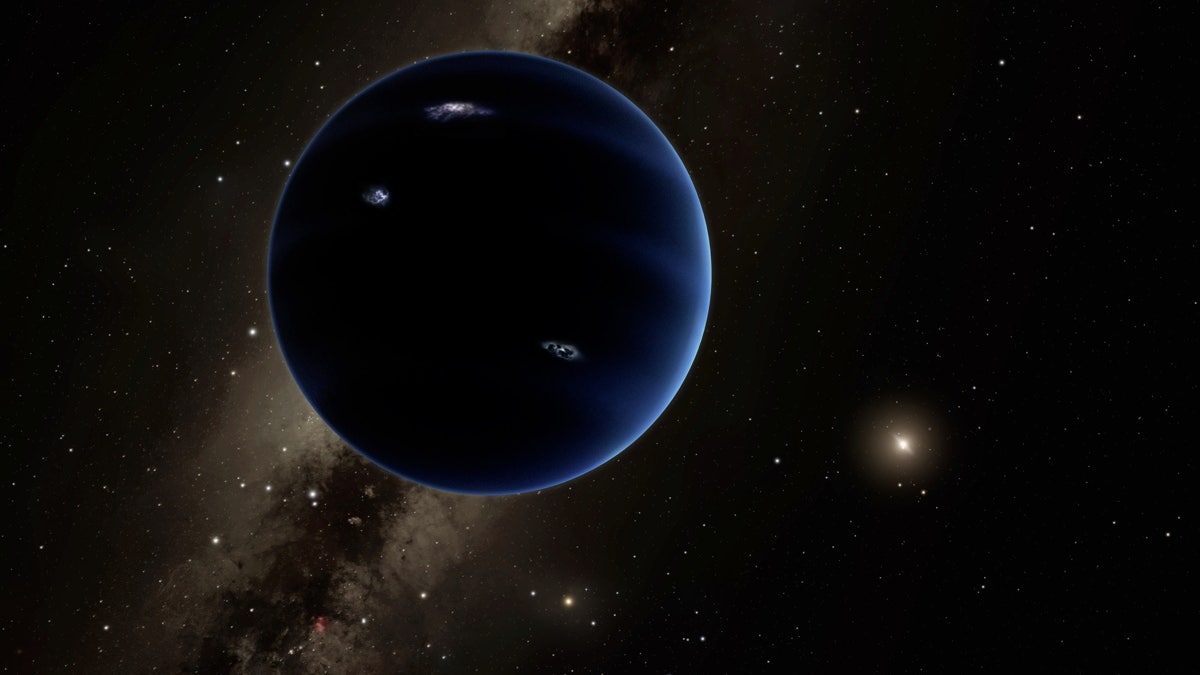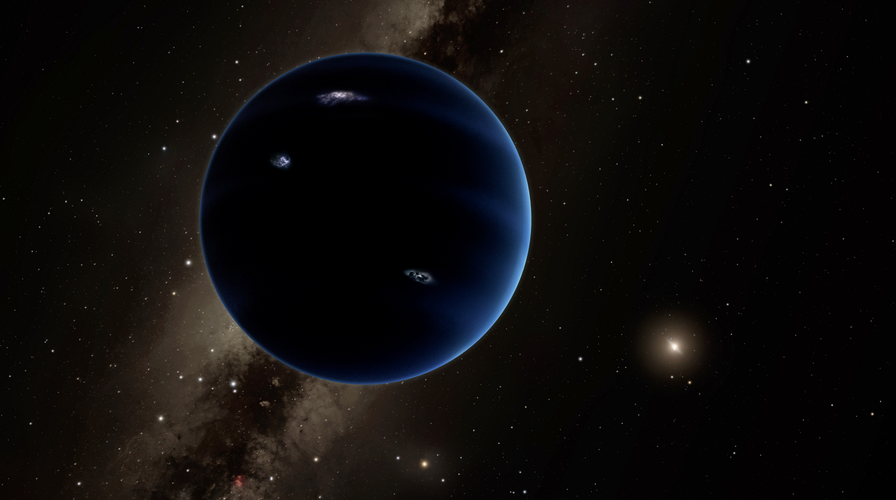Fox News Flash top headlines for Sept. 30
Fox News Flash top headlines for Sept. 30 are here. Check out what's clicking on Foxnews.com
The possible existence of Planet Nine and its impact on distant objects in the solar system has fascinated researchers for some time. But a new study suggests that the theoretical object may not be a giant planet hiding behind Neptune — but rather a primordial black hole.
The research, posted on arXiv, a repository for studies that have not yet been peer-reviewed, suggests that whatever celestial object that's heavily altering the paths of ice chunks in the farthest part of the solar system doesn't necessarily have to be a planet, even if it may be the most likely option.
"We highlight that the anomalous orbits of Trans-Neptunian Objects (TNOs) and an excess in microlensing events in the 5-year OGLE dataset can be simultaneously explained by a new population of astrophysical bodies with mass several times that of Earth," researchers Jakub Scholtz and James Unwin wrote in the study's abstract. "We take these objects to be primordial black holes (PBHs) and point out the orbits of TNOs would be altered if one of these PBHs was captured by the Solar System, inline with the Planet 9 hypothesis."

Artist's illustration of Planet Nine, a hypothetical world that some scientists think lurks undiscovered in the far outer solar system. (R. Hurt (IPAC)/Caltech)
Scholtz and Unwin continued: "Capture of a free floating planet is a leading explanation for the origin of Planet 9 and we show that the probability of capturing a PBH instead is comparable. The observational constraints on a PBH in the outer Solar System significantly differ from the case of a new ninth planet."
Speaking with Gizmodo, Unwin said that limiting the thinking to only a planet restricts "the experimental search that you're undertaking."
“Once you start thinking about more exotic objects, like primordial black holes, you think in different ways," Unwin continued in his interview with the news outlet. "We advocate that rather than just looking for it in visible light, maybe look for it in gamma rays. Or cosmic rays.”
Primordial black holes are hypothetical black holes that formed soon after the universe. Researchers have not been able to locate them just yet, but researchers believe they are prevalent and may play a role in the existence of dark matter.
Dark matter is believed to account for 85 percent of all matter in the known universe.
Evidence of Planet Nine?
A hypothetical planet that has been described as "the solar system's missing link," Planet Nine (also known as Planet X) has been part of the lexicon for several years, first mentioned in 2014. It was brought up again in 2016, when Caltech astrophysicists Mike Brown and Konstantin Batygin first wrote about it.
THE HUNT FOR MYSTERIOUS PLANET 9
In October 2017, Batygin said that there are "five different lines of observational evidence" that point to the existence of Planet Nine.
The five lines of evidence are:
- Six known objects in the Kuiper Belt, all of which have elliptical orbits that point in the same direction.
- The orbits of the objects are all tilted the same way; 30 degrees "downward."
- Computer simulations that show there are more objects "tilted with respect to the solar plane."
- Planet Nine could be responsible for the tilt of the planets in our solar system; the plane of the planet's orbit is tilted about 6 degrees compared to the Sun's equator
- Some objects from the Kuiper Belt orbit in the opposite direction from everything else in the solar system.
"No other model can explain the weirdness of these high-inclination orbits," Batygin said at the time. "It turns out that Planet Nine provides a natural avenue for their generation. These things have been twisted out of the solar system plane with help from Planet Nine and then scattered inward by Neptune."
In October 2017, NASA released a statement saying that Planet Nine may be 20 times further from the Sun than Neptune is, going so far as to say "it is now harder to imagine our solar system without a Planet Nine than with one."









































